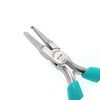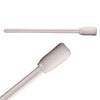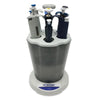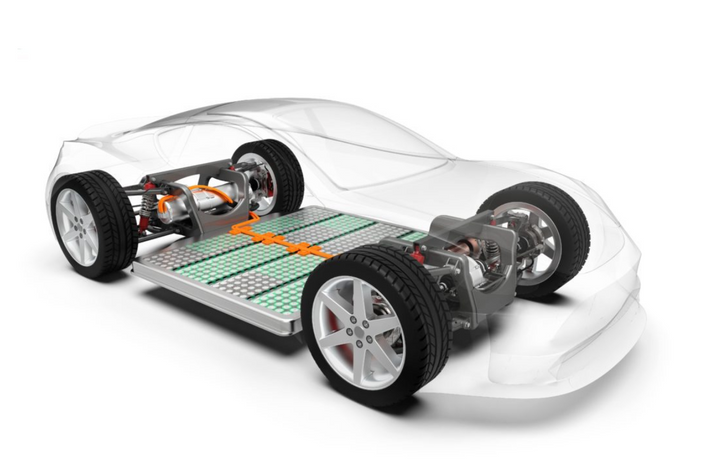- No products in the cart.
Unleashing the Power: Exploring Breakthroughs in Electric Battery Research
Sep
03
2023
Electricity has become the lifeblood of the modern world, powering everything from our smartphones to electric vehicles. As our reliance on electricity continues to grow, so does the need for more efficient, longer-lasting, and environmentally friendly batteries. This demand has sparked a surge in electric battery research, with laboratories around the world dedicated to pushing the boundaries of what's possible in energy storage. In this blog post, we'll delve into the exciting world of electric battery research, highlighting the cutting-edge advancements and the essential lab equipment and supplies that fuel these breakthroughs.
The Electric Battery Revolution
Electric batteries have come a long way since Alessandro Volta created the first true battery, the Voltaic Pile, in 1800. Today, batteries are powering our transition to clean energy, electric transportation, and portable electronics. However, there are significant challenges to overcome, such as improving energy density, reducing charging times, and ensuring the sustainability of battery materials.
The Role of Research Laboratories
Research laboratories play a pivotal role in advancing battery technology. These labs are where scientists and engineers conduct experiments, develop new materials, and test innovative designs. To unleash the full potential of electric batteries, researchers need state-of-the-art equipment and supplies. Let's explore some of the key elements of an electric battery research laboratory:
1. Battery Testing Equipment
Battery testing equipment is at the heart of any battery research lab. It allows researchers to evaluate the performance and characteristics of various battery chemistries and designs. Some essential testing equipment includes:
-
Cycling Testers: These machines charge and discharge batteries repeatedly to assess their cycle life and capacity retention.
-
Electrochemical Impedance Spectroscopy (EIS) Analyzers: EIS is a powerful tool for analyzing the electrochemical behavior of batteries and identifying internal resistance.
-
Calorimeters: Calorimeters measure the heat generated or absorbed during battery reactions, helping researchers understand thermal behavior.
-
Voltage and Current Meters: Precise measurement of voltage and current is essential for characterizing battery performance accurately.
2. Materials Research Tools
Battery materials are a critical focus of research efforts. Innovations in materials can lead to breakthroughs in energy density, safety, and sustainability. Some equipment and supplies in this category include:
-
Electron Microscopes: High-resolution electron microscopes allow researchers to examine battery materials at the nanoscale, revealing their structures and defects.
-
X-ray Diffraction (XRD) Analyzers: XRD is used to study the crystalline structures of materials, aiding in the development of new cathode and anode materials.
-
Material Synthesis Tools: These include furnaces, mixers, and reactors for producing battery materials and prototypes.
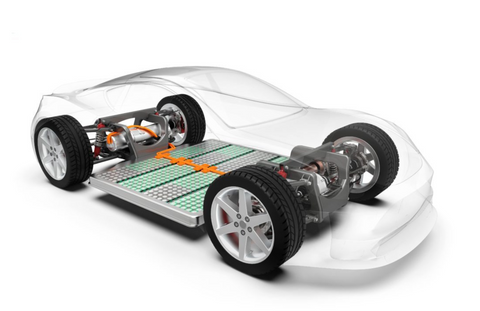
3. Safety Measures
Safety is paramount in battery research, especially when working with high-energy-density materials. Labs should be equipped with safety measures, including:
-
Fume Hoods: Fume hoods provide ventilation and protection when working with potentially hazardous chemicals.
-
Fire Suppression Systems: Battery fires can be catastrophic. Labs may have specialized fire suppression systems designed for battery safety.
-
Personal Protective Equipment (PPE): Lab researchers should wear appropriate PPE, including lab coats, gloves, and safety glasses.
4. Battery Prototyping and Assembly Tools
To test new battery designs and concepts, researchers need tools for prototyping and assembly, including:
-
Battery Electrode Coaters: These machines are used to apply electrode materials evenly to current collectors.
-
Cell Assembly Equipment: Tools for assembling battery cells, including winding machines, stacking machines, and tab welders.
-
Battery Formation Equipment: Formation equipment is used to condition batteries before testing, ensuring they perform consistently.
5. Environmental Testing Chambers
Environmental chambers simulate real-world conditions, allowing researchers to test how batteries perform in various temperatures and humidity levels. This information is critical for designing batteries that can operate in extreme environments.
6. PPE and Lab Consumables
In addition to the equipment mentioned above, electric battery research labs require a range of PPE and lab consumables:
-
PPE: Lab coats, gloves, safety glasses, face shields, and respiratory protection are essential to protect researchers from chemical exposure and potential hazards.
-
Lab Consumables: These include chemicals, solvents, electrodes, separators, electrolytes, and various components needed for battery assembly and testing.
Recent Breakthroughs in Electric Battery Research
With the right equipment and expertise, battery researchers have achieved remarkable breakthroughs in recent years:
-
Solid-State Batteries: Researchers are making progress in developing solid-state batteries that replace traditional liquid electrolytes with solid materials. These batteries promise higher energy density, faster charging, and improved safety.
-
Advanced Anode Materials: Silicon and lithium-silicon anodes are emerging as alternatives to traditional graphite anodes, offering higher capacity and longer cycle life.
-
Sustainable Materials: Sustainable battery materials, such as sodium-ion and zinc-ion chemistries, are being explored to reduce reliance on rare and costly materials like lithium and cobalt.
-
Fast-Charging Technologies: Researchers are working on fast-charging technologies that could reduce charging times to minutes, making electric vehicles even more practical.
The Path Forward
Electric battery research is an exciting field with the potential to revolutionize energy storage and transportation. As researchers continue to push the boundaries of what's possible, we can expect even more efficient, longer-lasting, and sustainable batteries in the near future. The equipment and supplies in battery research labs are the tools of innovation, and they are instrumental in driving these advancements. With each breakthrough, we get one step closer to realizing the full potential of electric batteries and a cleaner, more sustainable energy future.
For over 40 years, Lab Pro Inc. is your steadfast source for premium cleanroom lab supplies, hand tools, lab equipment, chemicals, and PPE apparel. Trusted by electric battery manufacturers industries, medical device companies, and laboratories globally, we epitomize exceptional quality in every product. Experience the convenience of next day service in California. Contact us online or at 888-452-2776 to explore solutions tailor-made for laboratories. Elevate your experiments and aerospace pursuits with Lab Pro Inc. – your partner in precision and excellence.












